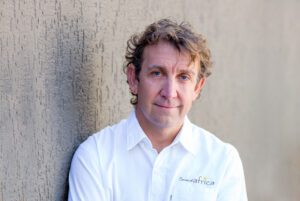
By:Nguriye Katusuva
Sense of Africa, the leading inbound destination management company in Africa, reckons that some of the anticipated risks for the tourism industry in the future are less travel by individuals.
The company’s chief operations officer Paul Brinkmann said this at a two-day Namibia Tourism Board (NTB) symposium with ‘Re-imaging Stronger Together Spirit’ as theme in Swakopmund this week.
The symposium brought together 70 delegates served as a vehicle to chart the way forward to revive the tourism industry and to aid the ministry of environment, forestry and tourism in supporting its tourism revival plan.
Brinkmann’s warning comes despite an expected positive outlook for the local tourism sector, with an expected 500000 tourist visits expected in 2022, compared to the 354508 arrivals recorded in 2021.
This however remains well below the over 1.5 million arrivals recorded in 2019.
He added that the industry suffers from a shortage of employees due to the pandemic and mostly by poaching by other industries.
“We are looking at losing people travelling. We need to focus on which market and what kind of product we sell.”
Brinkmann said online marketing is the biggest threat to the industry.
“Currently there is a very strong mix between traditional high streets travel agents with a static presence, high fixed cost against new online distribution channels. The future rings all products online situated anywhere with a much lower cost,”he said.
During the same event, Rudie van Vuuren, group CEO of Naankuse said in the last 18 years the group has invested nearly N$1 billion into conserving the landscapes, protecting wildlife and improving the lifestyle of its employees.
Van Vuuren said they built the Naankuse Primary School (previously Clever Cubs School) opened in 2009 after a need arose for the education of San children. The school has 65 pupils.
He said Namibia should be cautious about diseases that came from animals which, according to him, can cause a pandemic as some animals develop pathogens that no medication can cure. To prevent this from happening, he advised that Namibia should stop the illegal wildlife trade.
“We need to be active in stopping illegal wildlife trade, and zero tolerance for pouching,” Van Vuuren said .
Meanwhile, Hillya Nghiwete the managing director of Ongula Homestead Village situated in the north part of Namibia, shared the importance of rural transformation.
Nghiwete said the industry will perform better if tourists are taken to rural areas to get an overview of the village lifestyles.
She said the Ongula Homestead Village trains various school dropouts in different courses such as hospitality, clothing production, and agriculture.









Comments